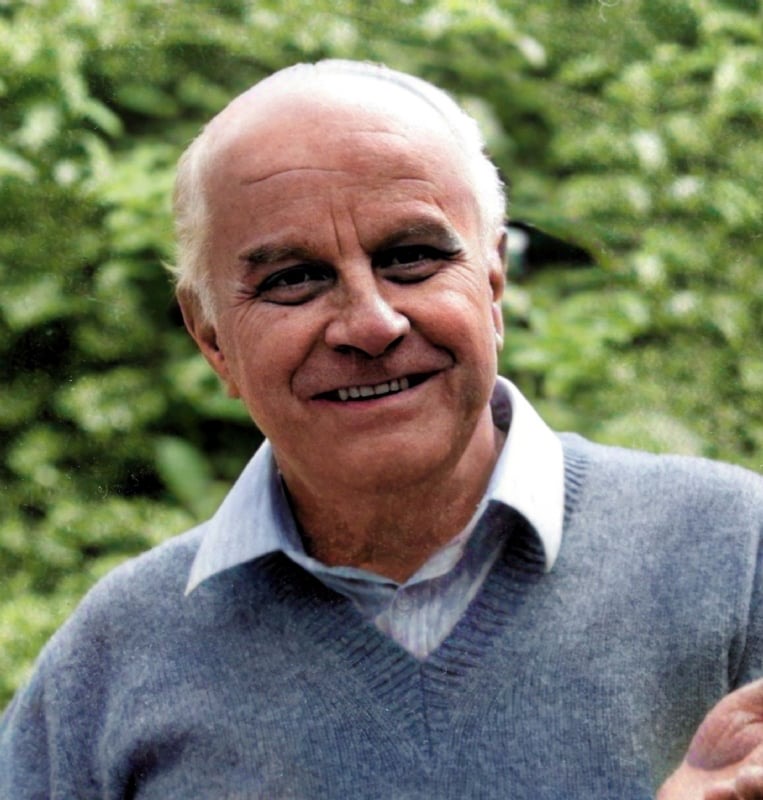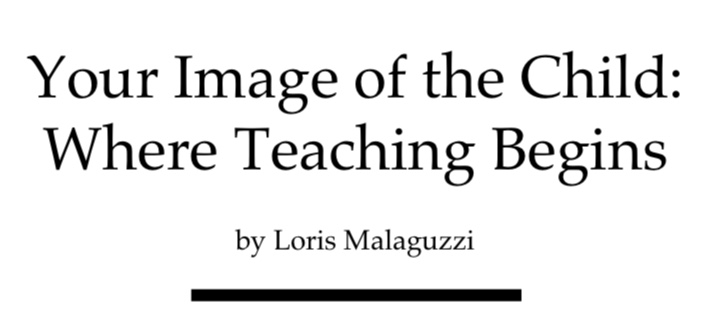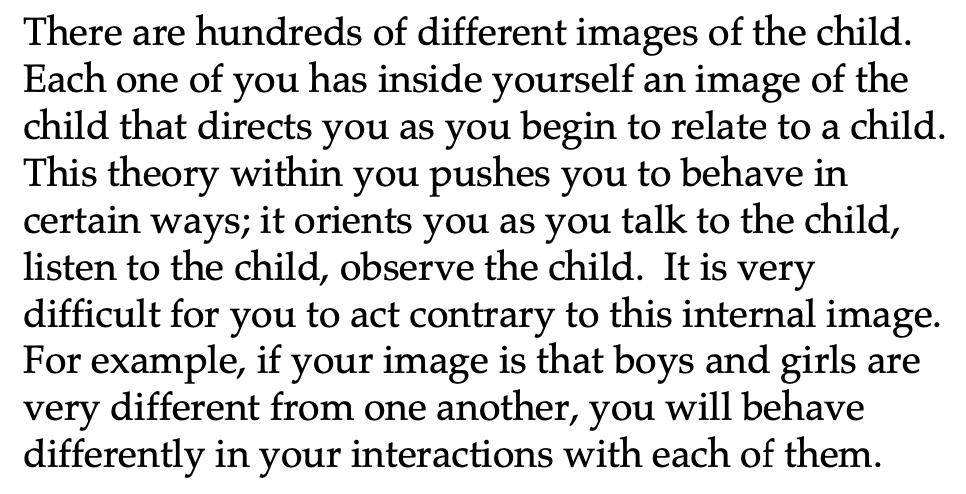Image of the Teacher


In Your Image of the Child, Loris Malaguzzi reminds us to regard children as whole human beings with a powerful sense of agency who can be as unpredictable as we are ourselves.
The school we are talking about is not the school you are familiar with in the past, but it is something that you can hope for. —Loris Malaguzzi, Your Image of the Child: Where Teaching Begins
Malaguzzi reminds us that an aspirational image of the child can enable us to bring acceptance and flexibility to every encounter.

Revisit Our Image of a Child
It’s necessary that we believe that the child is very intelligent, that the child is strong and beautiful and has very ambitious desires and requests. —Loris Malaguzzi
It takes wisdom and a great deal of practice for teachers to educate those strong and beautiful children who have ambitious desires and requests. Why don’t we hold the same ideal expectation for the adults who lead and care for them?
Examine assumptions about Teachers
An equal aspiration would include an attentiveness to our image of the educator, an image that could disrupt the current discourse of destructive distrust and choking constraints. A powerful image of the teacher would direct our pedagogy of listening to those who really matter—those who know and love our children. Instead of barriers and constraints, a powerful image of the teacher would remind us to rely upon the teacher’s experience and wisdom to grow good schools.
Children have a right to a good school — a good building, good teachers, right time, good activities. This is the right of ALL children. — Loris Mallaguzi
Apply Malaguzzi’s Words
Below are quotations from Loris Malaguzzi about the Image of the Child. I have replaced the word child with…teacher…to hear how Malaguzzi’s school to hope for applies to teachers, too. When the word teacher appears within his message instead of the word child, we hear the wisdom of Malaguzzi and embolden our Image of a Teacher.
Teachers…need to know that we are their friends, that they can depend upon us for the things they desire, that we can support them in the things that they have, but also in the things that they dream about, that they desire.” —Loris Malaguzzi
The political rationalization for constraining funds from fully supporting education and narrowing the activities in a school is that teachers are incapable, subservient employees who ought to implement assigned tasks. That image not only masks the need for this essential public investment but also their implied incompetence rationalizes external controls.
Improve Education
If we want to improve schools for young children, we can accompany the work of holding a powerful image of the child with the same belief for teachers.
It’s necessary that we believe that the …teacher…is very intelligent, that the…teacher…is strong and beautiful and has very ambitious desires and requests. —Loris Malaguzzi
A wholesome image of the educator follows that belief.
Teachers…need to enjoy being in school, they need to love their school and the interactions that take place there. Their expectations of these interactions is critical.” —Loris Malaguzzi
We know this is true. It’s easy to think of teachers as thoughtful, inquisitive, people, whom we depend upon to lead not only the children but also their administrators, as well as be essential leaders in our local community.
Set the Stage for a Better Future
The teacher is key. Like a theatrical production company, events in a school—in each classroom and each building—are led by the teachers. They design the sets, author the story, cue the scenes, stage the actions, prompt the actors, and listen and consider the work. Their every action and word creates the emergent conditions for the best in every child who is an essential, powerful member of the classroom community.
“We need to produce situations in which…teachers…learn by themselves, in which…teachers…can take advantage of their own knowledge and resources autonomously, and in which we guarantee the intervention of the adult as little as possible.” —Loris Malaguzzi
We can disrupt the language of “training and technical assistance,” which wastes their time and masks the imposition of policies constraining the choices teachers can make in the daily life of a school.
Rely on Teacher’s Expertise
Holding a wholesome image of the teacher reminds us to support those whose thoughtfulness and expertise ensure the well-being of our children and vitality of our communities.
“Both children and adults need to feel active and important — to be rewarded by their own efforts, their own intelligences, their own activity and energy.” —Loris Malaguzzi
Our wholesome image of the teacher, like that of the child, inspires our trust. We expect them to do good work, to choose well, to forward our shared ideals, and to grow in concert with the interests of our community.
“Those who have the image of the…teacher…as fragile, incomplete, weak, made of glass gain something from this belief only for themselves. We don’t need that as an image of the…teacher.—Loris Malaguzzi
Recognize teachers as leaders
Those who choose teaching ought to be full participants, along with their communities, in the authorship of their own lives.
Let us demand that discussions and proposals about improving education contain an aspirational image of the teacher to honor their role and celebrate their strengths.
call out discounting
We can be discerning in the ways people refer to those who teach, for wholesome education enables us all to work toward a sustainable world of stewardship and hope.
